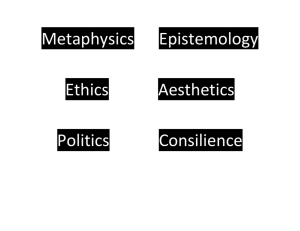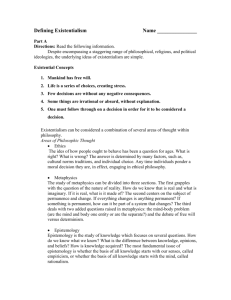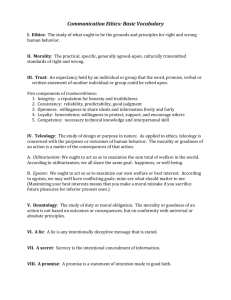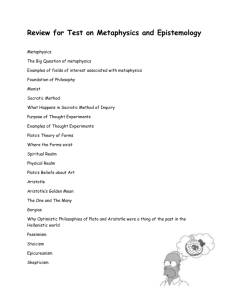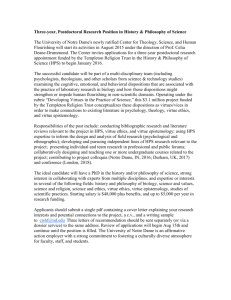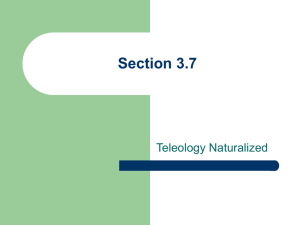3 Parts of Morality quiz review
advertisement
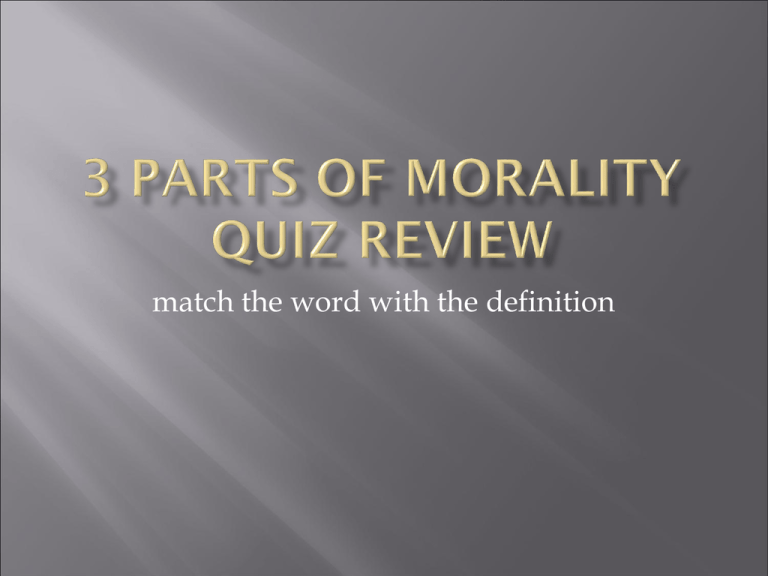
match the word with the definition ___ Epistemology ___ Ethics ___ Metaphysics ___ Logic ___ Teleology, ___ Deontology, ___ virtue theory. It focuses on right and wrong moral actions and moral laws and holds that some moral acts and rules are intrinsically right or wrong irrespective of the consequences produced by doing those acts or following those rules ___ Deontology, ___ Epistemology ___ Ethics ___ Metaphysics ___ Logic ___ Teleology, ___ Deontology, ___ virtue theory. It investigates the principles of right reasoning and focuses on questions surrounding properly stated syllogisms. One wants to know when a conclusion can be legitimately drawn from stated premises. ___ Logic ___ Epistemology ___ Ethics ___ Metaphysics ___ Logic ___ Teleology, ___ Deontology, ___ virtue theory. It addresses issues of character and motive and focuses on the nature and formation of a good person, and the sort of dispositions and character traits that constitute the good person. ___ virtue theory. ___ Epistemology ___ Ethics ___ Metaphysics ___ Logic ___ Teleology, ___ Deontology, ___ virtue theory. The word literally means “beyond the physical.” It is the branch of philosophy that “inquires into the ultimate nature of reality.” ___ Metaphysics ___ Epistemology ___ Ethics ___ Metaphysics ___ Logic ___ Teleology, ___ Deontology, ___ virtue theory. It address matters relating to ideals, goals or purposes and focuses almost exclusively on ends and/or consequences of acts to determine their moral value. ___ Teleology, ___ Epistemology ___ Ethics ___ Metaphysics ___ Logic ___ Teleology, ___ Deontology, ___ virtue theory. It is the theory of knowledge, is that branch of philosophy which is concerned with the nature and scope of knowledge, its presuppositions and basis, and the general reliability of claims to knowledge.” ___ Epistemology ___ Epistemology ___ Ethics ___ Metaphysics ___ Logic ___ Teleology, ___ Deontology, ___ virtue theory. It can be understood as the philosophical study of morality, which is concerned with our beliefs and judgments regarding right and wrong motives, attitudes, character and conduct.” Sometimes, ethics is called moral philosophy. ___ Ethics


